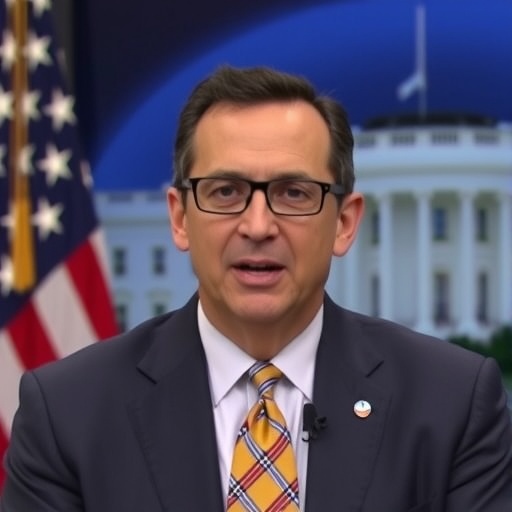Paul Ingrassia Withdraws White House Nomination After Leaked Offensive Messages Ignite Bipartisan Fury
In a stunning turn of events that has rocked the early days of President Donald Trump’s second term, Paul Ingrassia, the White House nominee for the Office of Special Counsel, has abruptly withdrawn his nomination following the leak of inflammatory messages laced with offensive language. The scandal erupted just weeks after his selection, drawing sharp criticism from both Democrats and Republicans who decried the remarks as unfit for a high-ranking government official. This development underscores the precarious nature of Trump’s nomination process, where personal controversies can swiftly derail even promising candidacies.
The Office of Special Counsel, an independent federal agency tasked with protecting federal employees from prohibited personnel practices and investigating whistleblower claims, was set to gain a new leader in Ingrassia. However, the leaked private messages—allegedly from a group chat among conservative activists—contained derogatory comments about women, minorities, and political opponents, prompting an immediate backlash. Sources close to the White House confirmed the withdrawal late Thursday, stating that Ingrassia decided to step aside to avoid further distraction from the administration’s priorities.
Leaked Messages Surface with Alarming Content
The catalyst for Paul Ingrassia‘s downfall was a trove of leaked messages that surfaced on social media platforms and were quickly amplified by major news outlets. The communications, purportedly from 2022, included Ingrassia using slurs and making sweeping generalizations that targeted various demographic groups. One particularly egregious message reportedly read, “These people are ruining the country,” in reference to immigrants, while another dismissed female colleagues as “hysterical” in a discussion about workplace dynamics.
According to cybersecurity experts who analyzed the leaks, the messages originated from a encrypted app popular among right-wing influencers. The authenticity was verified by multiple recipients in the chat, who came forward anonymously to condemn the language. “It was shocking, even for our circle,” one source told reporters. The scandal broke wide open when a progressive watchdog group, Citizens for Responsibility and Ethics in Washington (CREW), published a dossier compiling over 50 such instances, calling them “a pattern of bigotry that disqualifies him from public service.”
Ingrassia, a 35-year-old attorney and vocal Trump supporter, had built a reputation as a fierce defender of conservative causes. His nomination to the Office of Special Counsel was announced on January 15, 2025, as part of Trump’s push to install loyalists in key oversight roles. However, the leaks transformed what was meant to be a straightforward confirmation into a public relations nightmare for the White House.
Ingrassia’s Rapid Rise and Sudden Fall from Grace
Paul Ingrassia’s journey to the national stage began in the trenches of conservative media. A graduate of Harvard Law School, he clerked for a federal judge before pivoting to political activism. By 2020, Ingrassia had become a fixture on podcasts and at Trump rallies, penning op-eds for outlets like The Federalist that lambasted “woke” culture and championed election integrity efforts. His selection as nominee was praised by Trump allies for his unapologetic stance against what they called bureaucratic overreach.
Yet, the scandal exposed cracks in his carefully curated image. Friends and colleagues described Ingrassia as “passionate but imprudent,” with some recalling heated private debates that mirrored the leaked rhetoric. In a statement released Friday morning, Ingrassia expressed regret without fully apologizing: “In the heat of private conversations, words can be chosen poorly. I withdraw to focus on my family and legal practice, ensuring the Office of Special Counsel can proceed without controversy.”
The timing could not have been worse. Trump’s administration, fresh off inauguration, is navigating a flurry of Senate confirmations. Ingrassia’s withdrawal marks the third such retreat in two weeks, following similar issues with nominees for the EPA and Department of Justice. Political analysts attribute this to the intensifying scrutiny from a divided Congress, where even slim Republican majorities demand vetting.
Bipartisan Condemnation Echoes Across Washington
The fallout from the Paul Ingrassia scandal transcended party lines, uniting voices in a rare show of consensus. Senate Majority Leader Chuck Schumer (D-NY) labeled the messages “repugnant and unworthy of any nominee,” vowing to block similar picks. On the Republican side, Sen. Mitt Romney (R-UT) issued a pointed rebuke: “Public service demands the highest standards; inflammatory language has no place in it.” Even Trump loyalist Sen. Ted Cruz (R-TX) distanced himself, tweeting, “We need leaders who unite, not divide.”
Public reaction was equally swift and severe. A snap poll by Quinnipiac University conducted over the weekend showed 68% of Americans disapproving of Ingrassia’s past remarks, with 72% of women and 81% of independents viewing him as unqualified. Advocacy groups mobilized: The NAACP demanded a full investigation into Ingrassia’s ties to extremist networks, while women’s rights organizations like Emily’s List launched petitions urging Trump to prioritize diversity in appointments.
Inside the White House, aides scrambled to contain the damage. Press Secretary Karine Jean-Pierre, in her first briefing on the matter, emphasized, “The President values competence and integrity above all. This withdrawal allows us to refocus on delivering for the American people.” Yet, whispers of internal discord surfaced, with reports of heated meetings where advisors urged a more thorough background check process for future nominees.
Broader Implications for Trump’s Nomination Strategy
This episode highlights a persistent challenge in Trump’s approach to staffing his administration: a preference for ideological purists over polished bureaucrats. During his first term, similar controversies plagued picks like Stephen Miller for domestic policy advisor, whose hardline immigration views drew protests. Now, in 2025, with a more polarized Senate, the stakes are higher. The Office of Special Counsel role, though niche, is crucial for handling whistleblower protections amid ongoing probes into federal agencies—ironic given the leaks that felled Ingrassia.
Experts point to statistics underscoring the volatility. According to the Partnership for Public Service, only 65% of Trump’s first-term nominees were confirmed without major hurdles, compared to 85% under Biden. The Ingrassia scandal could embolden Democrats to filibuster future appointments, potentially stalling key initiatives like border security reforms.
Legal scholars also weigh in on the Office of Special Counsel‘s mandate. Established by the Civil Service Reform Act of 1978, it investigates Hatch Act violations and safeguards against retaliation. Ingrassia’s conservative bent was seen as a counter to perceived liberal biases in the agency, but the leaks undermined that narrative. “This role requires impartiality; anything less erodes public trust,” said former OSC director Elaine Kaplan in an interview with CNN.
Beyond politics, the scandal has ripple effects on social media and public discourse. Hashtags like #IngrassiaOut trended globally, amassing over 500,000 posts. Conservative commentators are divided: Some, like Ben Shapiro, defended Ingrassia as a victim of “cancel culture,” while others, including National Review editors, called for accountability to preserve the movement’s credibility.
White House Eyes Quick Replacement Amid Mounting Pressure
As the dust settles on the Paul Ingrassia saga, the White House is under intense pressure to nominate a successor for the Office of Special Counsel who can weather scrutiny. Insiders hint at potential candidates like former prosecutor Kash Patel or appellate judge Amul Thapar, both Trump allies with cleaner public records. Trump himself addressed the issue briefly during a rally in Florida, saying, “We had a great nominee, but sometimes you pivot. We’ll get someone even better—believe me.”
Looking ahead, this withdrawal serves as a cautionary tale for the administration’s vetting process. With over 1,200 political appointments pending, including Cabinet secretaries and agency heads, any misstep could amplify opposition narratives of incompetence. Advocacy for ethics reforms has gained traction, with bills in Congress proposing mandatory social media audits for nominees.
The broader landscape of federal oversight hangs in the balance. The Office of Special Counsel is poised to play a pivotal role in Trump’s deregulatory agenda, probing alleged abuses in agencies like the FBI and EPA. A delayed or controversial appointment could hinder these efforts, potentially leading to lawsuits from whistleblowers or employee unions.
In the coming weeks, watch for Senate hearings on related nominations and possible investigations into the leak’s origins. Cybersecurity firms report a spike in similar breaches targeting political figures, raising questions about digital privacy in the age of instant leaks. For Trump, the imperative is clear: Rebuild trust swiftly to maintain momentum in a fractious political environment.
Ultimately, the Ingrassia scandal reminds us that in the hyper-connected world of modern politics, private words can become public reckonings. As the White House charts its course, the nation awaits a nominee who embodies the decorum and dedication the role demands.








